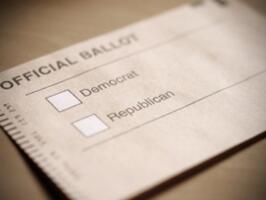A Never-Trump Press in Near Panic By Patrick J. Buchanan
"All the News That's Fit to Print" proclaims the masthead of The New York Times. "Democracy Dies in Darkness," echoes The Washington Post.

"All the News That's Fit to Print" proclaims the masthead of The New York Times. "Democracy Dies in Darkness," echoes The Washington Post.

As this weekend’s Super Bowl brings football season to an end, more than one-in-three Americans say on-field protests by NFL players who took a knee during the national anthem deterred them from tuning in to this season’s games.

Donald Trump's surprisingly good State of the Union speech got a record 70 to 75 percent positive approval rating from those who watched. Even if you discount (as you should) for the Trump haters who can't bear to watch him and chose another of their 100-plus cable channels, that's not chopped liver.

When tracking President Trump’s job approval on a daily basis, people sometimes get so caught up in the day-to-day fluctuations that they miss the bigger picture.

Voters concede that opposition to President Trump’s agenda is politically motivated, but even after Trump’s conciliatory State of the Union speech, they’re slightly less convinced Congress should work with the president.

Charting out the Democrats’ path to 218 seats, district by district

The stock market has been climbing steadily higher since Donald Trump's election as president, but Americans still aren’t convinced the boom will last.

Facebook has announced new algorithms that will help them weed out so-called “fake news” and also recalibrate how much news and political content is shown in your news feed versus personal content from friends.

The unemployment rate is down and the stock market has hit record highs. So perhaps it’s no surprise that nearly half of voters give President Donald Trump positive marks for his handling of the economy.

Xinran Ji, 24, had big dreams. But demons demolished them.


Never in the history of this Republic has there been such a jubilant celebration of lawlessness in the heart of our government as we saw at President Trump’s State of the Union address to Congress.

Most voters don’t generally have faith that the promises made in the president’s State of the Union address will be accomplished, but they think Trump has a better chance than most of keeping his promises.

President Trump should have a sizable audience for his State of the Union speech tonight, but more voters than usual say they are likely to tune in to the official Democratic response as well.

"America is open for business, and we are competitive once again." That was just one of the key lines in President Trump's highly successful speech in Davos, Switzerland, last week.

Most Americans still consider themselves healthy, but many continue to pass on medical checkups and prescription drugs to save money.

If Turkey is not bluffing, U.S. troops in Manbij, Syria, could be under fire by week's end, and NATO engulfed in the worst crisis in its history.
Turkish President Erdogan said Friday his troops will cleanse Manbij of Kurdish fighters, alongside whom U.S. troops are embedded.

Thirty-nine percent (39%) of Likely U.S. Voters now think the country is heading in the right direction, according to a new Rasmussen Reports national telephone and online survey for the week ending January 25.

With midterms on the horizon, voters now seem to want a shift in Congressional leadership.

While a majority of voters continue to be skeptical of big business and its ties to government, that number is down significantly from previous surveys.